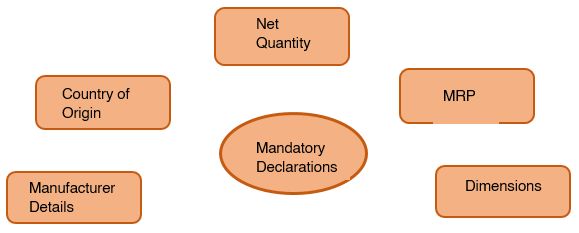E-commerce is an online based business model which have been set up for providing the consumers an online market portal used by people for buying and selling the products and the services. The Consumer Protection Act, 2019 defines, the term as, "buying or selling of goods or services including digital products over digital or electronic network." Thus, e-commerce usually functions using a lot of electronic services itself like the internet services, electronic funds transfer services, electronic data exchange etc. Since in India a large percentage of products and services are availed through electronic means in an online environment (especially in the present pandemic / lock – down ridden world), the laws that govern its functioning to keep checks and balances are to be oriented.
Types Of Business Models Under E-Commerce
The most commons business models facilitated by e-commerce are:
|
Business to Business (B2B) |
B2B describes commerce transactions between various businesses thereby enabling various businesses to build new relationships with other businesses such as between manufacturer and a wholesaler, or between wholesaler and a retailer. |
|
Business to Consumer (B2C) |
B2C describes activities of businesses serving end consumers with products and/or services. |
|
Consumer to Consumer (C2C)
|
C2C involves the electronically facilitated transactions between consumers through some third party. Traditionally consumers have had dealings with other consumers, but only few of those activities were in a commercial sense.
|
|
Consumer to Business (C2B) |
C2B involves consumers which provide goods/services to businesses and create value for the business. |
|
Business to Business to Consumer (B2B2C) |
This is an alternative to the B2C model in which there is an additional intermediary business to assist the first business to transact with the end consumer. For instance, Flipkart which is one of the successful e-commerce portals and which provides a stage for consumers to purchase a wide range of products. |
As we now understand the concept of e-commerce, it is very
necessary to know that the regulation of this sector in India is
very scattered, with a wide gamut of statutory enactments which
have been amended / enacted to govern the sector. Nonetheless,
there are various statutes that govern e-commerce activities which
are divided into broad categories as explained in this post.
- Laws Governing E-Commerce
- Information Technology Act, 2000 ("IT
Act")
There are different provisions under the IT Act which guides the working for the e-commerce. Section 84A of the IT Act cast a duty on the Central Government for the promotion of e-governance and e-commerce. It also has to provide for secures use of electronic mean. Provisions regarding the data protection are contained in Section 43A of the IT Act. Section 66A of the IT Act imposes a penalty in case of theft of identity and provides that whosoever person dishonestly uses the password, identity of other shall be punished with imprisonment that may extend to 2 years or with fine of INR 1,00,000/- or both.
E-commerce entities must comply with the Information Technology (Reasonable security practices and procedures and sensitive personal data or information) Rules, 2011. Intermediary websites and the content they display will govern by the Intermediary Rules 2011, under the IT Act. On 25 February 2021, the Ministry of Electronics and Information Technology (MeitY) notified the Information Technology (Guidelines for Intermediaries and Digital Media Ethics Code) Rules, 2021 ("Rules") in consultation with the Ministry of Information and Broadcasting. The Rules have been issued pursuant to the government's rule making powers under Section 87 of IT Act which includes rules in relation to the guidelines to be followed by intermediaries and blocking of access to content under the IT Act.
The Rules inter alia, require intermediaries to publish their rules and regulations, privacy policy and user agreement on their websites/applications and periodically inform users of the same, place hosting, storing, publishing, etc., prohibitions on intermediaries, and prescribe for an information retention period.
- Consumer Protection Act, 2019 and Consumer Protection
(E-Commerce) Rules, 2020
The Ministry of Consumer Affairs, Food and Public Distribution has recently notified the Consumer Protection Act, 2019 (CPA 2019) and the Consumer Protection (E-Commerce) Rules, 2020 (E-Commerce Rules). The CPA 2019 introduced significant changes to the 1986 consumer protection law, to address unique issues arising in this era of digitization and e-commerce. The E-Commerce Rules provide a framework to regulate the marketing, sale and purchase of goods and services online.
The E-Commerce Rules apply to: (a) all goods and services (including digital products) transacted over an electronic/digital network; (b) all models of e-commerce, including marketplace and inventory models (discussed below); (c) all e-commerce retail (including multi-brand and single brand retail trading); and (d) all forms of unfair trade practices across all e-commerce models.1
While the E-Commerce Rules apply to e-commerce entities, they do not apply to a natural person if: (a) the activities are performed in a personal capacity; and (b) the activities are not part of any professional or commercial activity that is carried out on a regular or systematic basis.2 Simply put, where an individual engages in a transaction in a personal capacity and not on a regular or systematic basis for any professional or commercial activity, the E-Commerce Rules will not apply. As a result, natural persons engaged in occasional transactions entailing consumer to consumer or business to consumer interface may be excluded.
Further, the E-Commerce Rules have extra-territorial application on those e-commerce entities which may not be established in India, but systemically offers goods and services to consumers in India.3 A proposed amendment contemplated by the Ministry of Consumer affairs to the E-Commerce Rules ("Draft Amendment") intends to widen the outreach as well as the list of dos and don'ts for e-commerce entities however, it is presently unclear as to where this amendment is headed. The salient features of the Draft Amendment cover the following:
- While e-commerce entities that were owners/operators/managers
of e-commerce platforms were governed by the E-Commerce Rules, the
Draft Amendment widens the ambit of an "e-commerce
entity" to include related parties as well as any entity
engaged by the e-commerce entity to fulfil the orders placed by its
users;
- E-commerce entities are required to mandatorily register
themselves with the Department for Promotion of Industry and
Internal Trade (DPIIT) and display their registration numbers
prominently to their users on their platform as well as the
invoices;
- Prohibition on the promotion or display of misleading
advertisements during the entity's ordinary course of business
or for any other such function;
- Change in the grievance redressal mechanism for e-commerce
entities by creating, in addition to the grievance redressal
mechanism with an Indian citizen and a resident "Chief
Compliance Officer" who would be managerial personnel or a
senior employee of the e-commerce entity liable for any proceedings
pertaining to third party information, data or communication link
provided by the e-commerce entity;
- Appointment of nodal contact person (again an employee (other
than the Chief Compliance Officer) who is an Indian citizen and
resident in India, for continuous coordination with law enforcement
agencies and officers for compliance of orders and requisitions;
and
- Prohibition of flash sales and cross selling.
- While e-commerce entities that were owners/operators/managers
of e-commerce platforms were governed by the E-Commerce Rules, the
Draft Amendment widens the ambit of an "e-commerce
entity" to include related parties as well as any entity
engaged by the e-commerce entity to fulfil the orders placed by its
users;
- Sectorial and Regulatory Compliance
- Foreign Exchange Management (Non - Debt Instruments) Rules,
2019
E-Commerce entities/platforms with Foreign Direct Investment (FDI) are presently regulated by the Foreign Exchange Management (Non-Debt Instruments) Rules, 2019. E-commerce entity as per the aforementioned rules, means a company incorporated under Companies Act 1956 or the Companies Act, 2013.
- Legal Metrology Act, 2009
The Legal Metrology Act defines "E-commerce entity" means a company incorporated under the Companies Act, 1956 or the companies Act, 2013 or a foreign company covered under Section 2(42) of the Companies Act, 2013, or an office, branch or agency in India covered under Section 2(ii)(v) of the Foreign Exchange Management Act, 1999 owned or controlled by a person resident outside India and conducting e-commerce business.
Any e-commerce entity must comply with and meet the standards relating to labelling and packaging set by the Legal Metrology Act, 2009 read with Legal Metrology (Packaged Commodity) Rules, 2011 that state that the online platform must display such mandatory information about the goods on the network, as is required to be displayed on physical packages as well. Display of mandatory information includes:

The product manufacturer/seller/dealer/importer is responsible for the correctness of statements made on marketplace model e-commerce portals, whereas e-commerce corporations are responsible for making the declaration. While the manufacturer, seller, dealer, or importer will be held responsible and punished under the Legal Metrology Act and rules for false information declared on a marketplace model e-commerce portal, the e-commerce institution will be held liable and punished for failing to make relevant pronouncements as required by the Legal Metrology and rules.
- Other Laws
- Indian Contract Act, 1872
In e-commerce transactions, e-contracts are formed which in actual are standard form agreements governed by the Indian Contract Act, 1872 ("Contract Act"). Thus, for e-commerce contracts to be valid, it must be (i) entered with the free consent of the parties to the contract; and (ii) there must be a lawful consideration for the contract. The Contract Act governs the conditions for validity of contracts formed through electronic means; communication and acceptance of proposals; additionally, revocation, and contract formation between consumers, sellers, and intermediaries.4 Further, the terms of service, privacy policy, and return policies of any online platform must be ensured to be legally binding agreements. The provisions relating to contract formations carried out electronically are contained under the Information Technology Act, 2008. Section 10A of the Information Technology Act, 2000 provides for the validity of the contract entered through electronic modes. It states whenever the communication and acceptance of the proposal, its revocation and acceptance are made in electronic form, such contract shall not be deemed to be invalid or unenforceable solely on the ground that electronic means is used for the purpose. Further information on the enforceability of electronic contracts is dealt with in our previous post here.
- Sale of Goods Act, 1930
The Sale of Goods Act, 1930 covers what the sales and shipping policy of the entity must contain. Additionally, terms such as the warranties, conditions, and the transfer of property in goods are also outlined for regulating the sale of goods. Further, the policy must also contain the fact of existence or non-existence of return/refund options.
- Competition Act, 2002
The Competition Act, 2002 identifies certain areas of the e-commerce ecosystem which are likely to come within the ambit of competition issues. Exclusive agreements between the online retailers (e-tailers) and the sellers, deep discounts offered on the online platforms which are oftentimes predatory in nature, platform neutrality and platform parity clauses. Provisions under Section 3, regarding anti-competitive agreements and Section 4 regarding abuse of dominant position are also applicable for e-commerce platforms.
In Sum
The e-commerce industry's rapid growth not only reflects the public's growing acceptance of it, but it has also brought to the fore concerns that the country's legal system has been dealing with. The laws for the e-commerce are quite uncondensed of statutes as there is no specific codified law. The companies will need to look at such a perspective of the particular situation for which the laws are to be considered of. To succeed in this field, e-commerce enterprises must have a thorough awareness of the legal regime and the potential challenges that an e-commerce business may encounter, as well as appropriate risk management measures. Further, the regulation of the e-commerce sector is extremely dynamic in nature and comprises of scattered statutory provisions. Hence, any entrepreneurs intending to venture into the e-commerce business must be mindful of the legal/regulatory compliances and accountability expected out of e-commerce activities in India. They must watch each step they take in light of the current eco-system as well as projected future changes.
Footnotes
1. Rule 2(1) of the Consumer Protection (E-Commerce) Rules, 2020
2. Proviso to Rule 2(1) of the Consumer Protection (E – Commerce) Rules, 2020
3. Rule 2(2) of the Consumer Protection (E – Commerce) Rules, 2020
4. Section 10, Indian Contract Act, 1872
The content of this article is intended to provide a general guide to the subject matter. Specialist advice should be sought about your specific circumstances.

